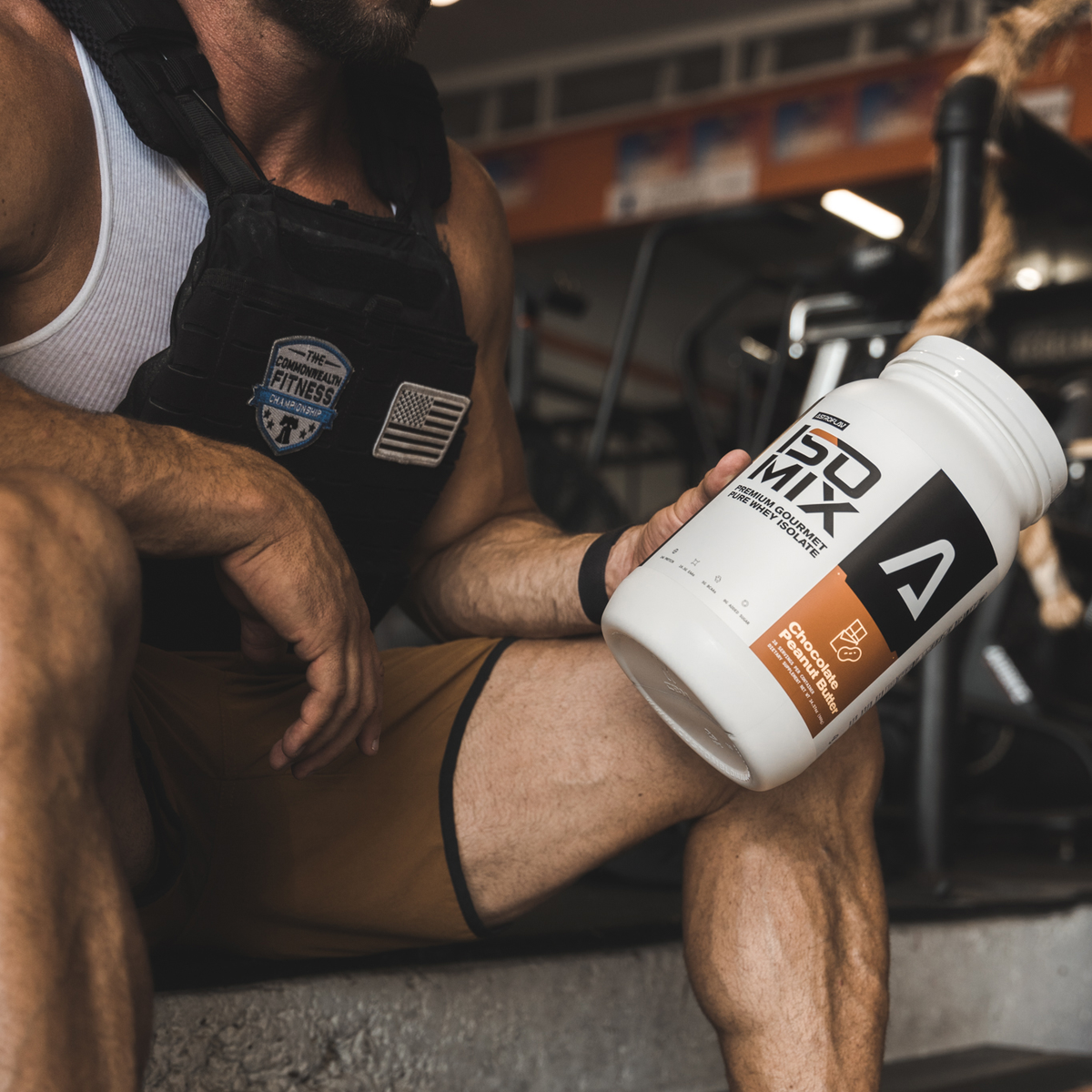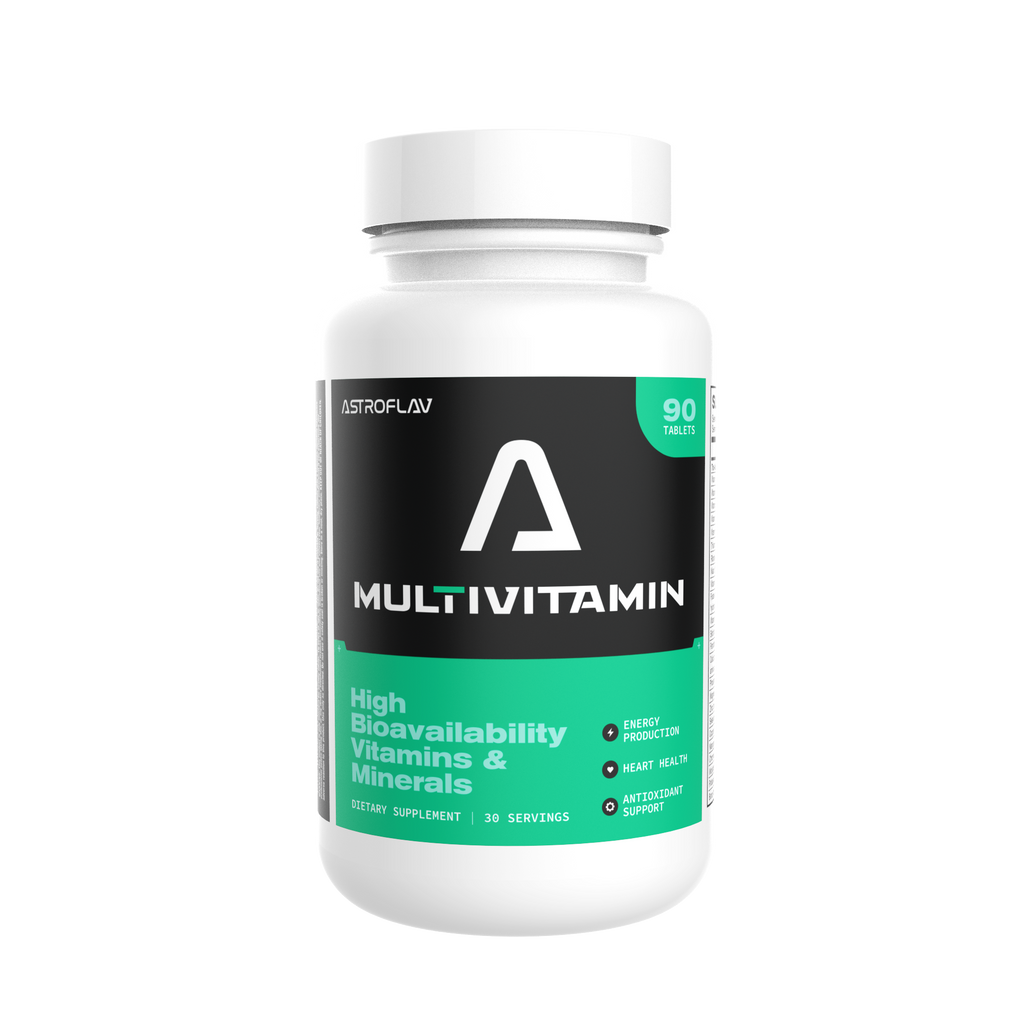
Best Vitamins & Supplements for Digestion
Bloat, gas, nausea... Digestive issues. Nearly 60-70 million Americans struggle with some kind of gastrointestinal (GI) issue. In our fast-paced lives, providing our bodies with the right vitamins and supplements can be a game-changer for digestive well-being. From supporting the gut microbiome with probiotics to aiding in nutrient absorption with key vitamins, the world of vitamins and supplements offers a plethora of options.
In today's article, we dive into the realm of digestive health and explore the best vitamins and supplements that can enhance your overall well-being. Whether you're seeking relief from occasional digestive discomfort or aiming to promote long-term gut health, this blog has it all! Keep scrolling to learn more!
The Digestive System
Digestion — the process in which the body breaks down food to deliver nutrients, vitamins, and minerals to the body. The digestive system is made up of the gastrointestinal tract, also known as the GI system. The main organs of this system are the liver, pancreas, and gallbladder. The hollow organs that make up the GI tract are the mouth, esophagus, stomach, small intestine, large intestine, and anus (NIH, 2017).
The digestive system plays a huge role in maintaining gastrointestinal health and supporting your overall health. It is critical for helping the body break down food, energy production, and cell repair and growth.
The digestive system functions at it's best when there is a good balance of bacteria. Healthy bacteria helps your body process and get energy from the foods you eat, clear toxins, fight against disease, and boost your mood.
Poor digestion is common in many people and can present itself with many unpleasant symptoms. Keep scrolling to see if you may be experiencing similar symptoms of an unhealthy gut!
Symptoms of a gut imbalance
If you have digestive issues, you are not alone. In fact, nearly 70 million Americans are affected by digestive diseases, from irritable bowel syndrome (IBS) to gastroesophageal reflux disease (Frederick Health, 2021). Along with poor digestion also may come uncomfortable and sometimes painful symptoms. Factors such as genetics, diet, and lifestyle habits may all trigger these unpleasant symptoms and affect gut health. Below is a list of common signs and symptoms of a gut imbalance!
Cramps
Diarrhea
Constipation
Stomach pains
Food sensitivity
Bloating & gas
Headaches/migraines
Poor immunity
How Can Improve My Digestion?
Although many digestive issues are genetic, there are many lifestyle modifications you can modify to improve your gut health. Many people tend to lean to the quickest solution by grabbing an over-the-counter medication like Prilosec or Tums to relieve these symptoms, but they don't get to the root of the issue.
This is where we turn to natural health solutions! Eating a diet rich in fiber is not only of the ways in which you can improve your gut microbiome, but also with the addition of natural supplements to aid and help balance the gut. Below is a closer look at the best natural supplements for gut health that may help you find relief for the long run!
Vitamins & Supplements for Digestion:
Vitamin C
Vitamin C is associated with the immune system because it works to boost the immune response by supporting the function and activity of immune cells (Everlywell, n.d). Vitamin C also works as an antioxidant, which essentially helps neutralize free radicals that can harm immune cells and limit their ability to fight off infection.
The connection between Vitamin C and the gut microbiome is due to it's ability to increase good bacteria and decrease the bad bacteria. Those with inflammatory bowel disease (IBD) may benefit from Vitamin C supplements and their inflammatory effects.
Vitamin C is found in foods like strawberries, bell peppers, citrus fruits, tomatoes, broccoli, and cabbage. Vitamin C supplements are advised if you're not consuming enough from your daily nutritional diet.
Vitamin D
Vitamin D can be absorbed from the sun as well as a digestive supplement. The connection between this vitamin and the digestive system is due to its' ability to affect the microbiome and ease IBD symptoms and flair ups. Additionally, Vitamin D also helps to regular inflammation throughout the body, inlcuding the digestive system (Everlywell, n.d).
Additionally, Vitamin D can regulate calcium absorption within the intestines that support bone-formation, muscle movement, and the nervous system.
Foods like eggs, cheese, fatty fish, fish oil, and beef liver all are sources of adequate sources of Vitamin D. Those living in climates that do not get much sun light and vegans may benefit from taking a Vitamin D supplement. "It’s recommended that adults take 600 international units (IU) of vitamin D daily. Although those over 70 years of age should have 800 IU daily. The UL for vitamin D is 4,000 IU per day." (Harvard, 2023).
Vitamin A
Vitamin A has been associated with many benefits to the digestive system. In fact, a Vitamin A deficiency can lead to a variety of gastrointestinal diseases. Vitamin A is essential for balancing the creation and elimination of free radical within the intestinal mucus lining of the stomach.
Interestingly enough, Vitamin A toxicity is actually far more common that insufficiencies. Having too much vitamin A can lead to symptoms like nausea, vomiting, dry skin, and bone pain.
Foods such as salmon, beef liver, sweet potatoes, broccoli, and green leafy vegetables all are appropriate sources of Vitamin A. If you find that your diet lacks Vitamin A filled foods, it may be necessary to supplement with Vitamin A.
B Vitamins
B-Vitamins are not only essential to your overall health and performance, but also for digestive support. They help release energy by breaking down carbohydrates and fats. They also provide assistance in processing and breaking down protein and help produce healthy cholesterol.
The gut microbiota produces hundreds of bioactive compounds including a variation of B-vitamins, which are essential to certain gut bacterium. Dietary B-vitamins are mainly absorbed from the small intestine; however, an excess of these vitamins cannot be absorbed and are then supplied to the colon. Below is a list of common B-Vitamins to look for on their own or in a multivitamin:
B1 (Thiamine)
B2 (Riboflavin)
B3 (Niacin)
B6 (Pyridoxine)
B7 (Biotin)
B12 (Cobalamin)
A high-quality multivitamin will provide all of the B-Vitamins listed above that are essential to supporting the digestive system. AstroFlav's Multivitamin provides not only all of the above, but also 7 active ingredients to provide the body with what it needs to perform at its best.
Probiotics & Prebiotics
I'm sure you have probably heard of the many benefits probiotics and prebiotics have for your gut. Well.. Whatever you have heard, likely it's the right information!
Probiotics and prebiotics are extremely beneficial to healthy digestion and overall gut health. Probiotics consist of various strains of good bacteria that help restore gut microbiome balance, enhance nutrient absorption, support immune function, and reinforce the gut's protective barrier ((Everlywell, n.d).
Probiotics and prebiotics also help manage conditions like irritable bowl syndrome (IBS), IBD, and antibiotic-associated diarrhea. Additionally, they can also relieve digestive symptoms like bloating, gas, and abdominal discomfort.
Prebiotics are a type of fiber that the body cannot digest, but the gut microbiome can. Prebiotics are also a source of healthy bacteria for the gut; sources include chicory root, dandelion greens, garlic, onions, and asparagus.
Probiotics and prebiotics can also be found in greens powders and green superfood supplements! Keep scrolling to learn more about supplementing with a greens supplement!
Supplementing with Greens Superfoods
Greens superfoods are a dietary supplement that help individuals reach their daily vitamin and mineral intake. These supplements are made up of a blend of vegetables, fruits, grasses, and seeds.
Exact ingredients vary depending on the brand of the greens supplement; however, common ingredients are spirulina, barley grass, leafy greens, digestive enzymes, and prebiotic blends.
Taking a greens superfood supplement everyday can provide many benefits, especially for those who may struggle eating vegetables and fruits.
Additionally, greens powders are useful for regulating steady daily energy through improved nutrient absorption. This is achieved when your body is adapted to a healthy balance by reducing the acid overload, improving gut health, and supplying your body with high quality nutrients.
The Bottom Line:
Digestive issues are not fun. From gas to constant bloating, taking care of your gut health should be a top on the priorities to alleviate some of these symptoms. Although certain gastrointestinal diseases may be genetic, there are many lifestyle factors and a wide selection of supplements to aid digestion.
Improving your gut health can be extremely beneficial to your overall health, wellbeing, and daily functioning! Rather than opting for the quickest over-the-counter solution, taking the natural approach will help get to the root of the problem. Vitamins and supplements are a great addition to your diet that can improve the gut microbiome immensely. Vitamins like Vitamin C, D, A, and B-vitamins are beneficial as they all serve as an anti-inflammatory and help balance healthy bacteria in the gut. Having a multivitamin that provides all of these vitamins may be something to consider when searching for a gut-health favored multivitamin.
Greens powders and green superfoods also provide a variety of prebiotics and probiotics that also aid digestive functioning and help alleviate unpleasant symptoms.
AstroFlav Multivitamin
Introducing our Multivitamin, a comprehensive and effective solution for individuals looking to support their general health and micro nutrition. Designed for both males and females aged 18 years and above, this product is perfect for anyone looking to improve their performance, recovery, or just maintain overall health.
Comprehensive formula covers micro nutrient needs for optimum health
Contains 100mg of PrimaVie® Shilajit
57 active ingredients provide the body with what it needs to perform at its best
Supports energy production, cardiovascular health, and antioxidant defense
Tru Absorb™ technology ensures highly bioavailable forms of minerals and vitamins for maximum absorption
With our Multivitamin, you can optimize energy production through our comprehensive B vitamin complex, fill any gaps in your diet, and enjoy added cardiovascular and antioxidant support. Don't settle for less, try our Multivitamin today and experience the benefits of a comprehensive and effective multivitamin formula.
AstroFlav Multivitamin
Introducing our Multivitamin, a comprehensive and effective solution for individuals looking to support their general health and micro nutrition. Designed for both males and females aged 18 years and above, this product is perfect for anyone looking to improve their performance, recovery, or just maintain overall health.
Comprehensive formula covers micro nutrient needs for optimum health
Contains 100mg of PrimaVie® Shilajit
57 active ingredients provide the body with what it needs to perform at its best
Supports energy production, cardiovascular health, and antioxidant defense
Tru Absorb™ technology ensures highly bioavailable forms of minerals and vitamins for maximum absorption
With our Multivitamin, you can optimize energy production through our comprehensive B vitamin complex, fill any gaps in your diet, and enjoy added cardiovascular and antioxidant support. Don't settle for less, try our Multivitamin today and experience the benefits of a comprehensive and effective multivitamin formula.
RESOURCES
https://www.niddk.nih.gov/health-information/digestive-diseases/digestive-system-how-it-works. (n.d.).
Frederick Health. (2021, July 29). 10 signs of an unhealthy gut. https://www.frederickhealth.org/news/2021/july/10-signs-of-an-unhealthy-gut/#:~:text=Frequent%20discomfort%2C%20gas%2C%20bloating%2C,have%20imbalances%20in%20the%20gut.
Vitamins for digestion: What to know - blog: Everlywell: Home Health Testing Made Easy. Everlywell. (n.d.). https://www.everlywell.com/blog/vitamins-supplements/vitamins-for-digestion/#:~:text=Vitamins%20C%2C%20D%2C%20A%2C,to%20support%20full%2Dbody%20wellness.
Vitamin D. The Nutrition Source. (2023, March 7). https://www.hsph.harvard.edu/nutritionsource/vitamin-d/





